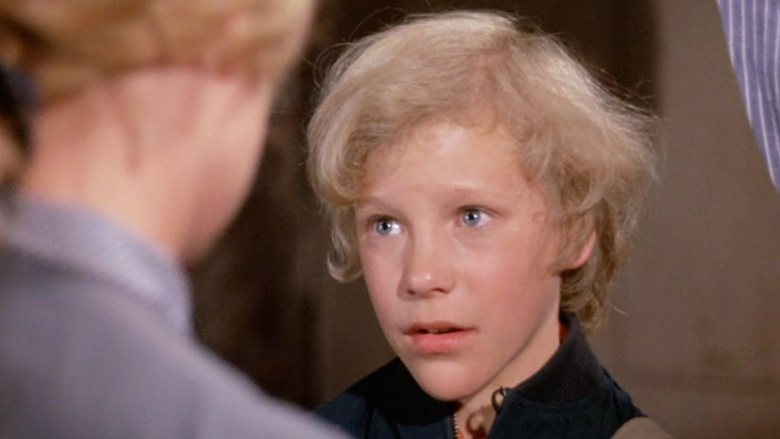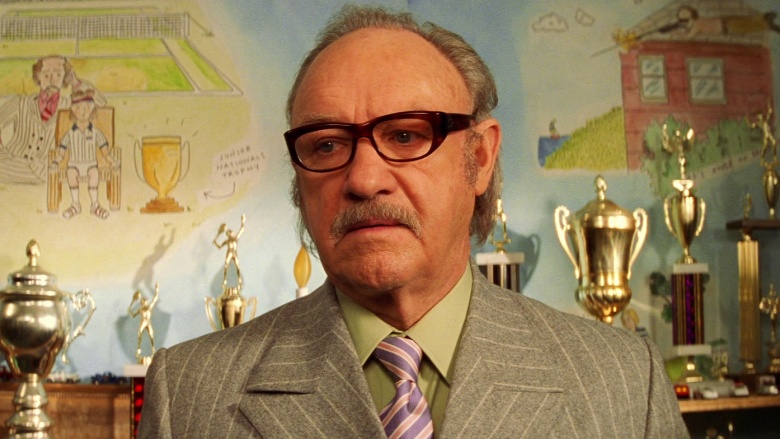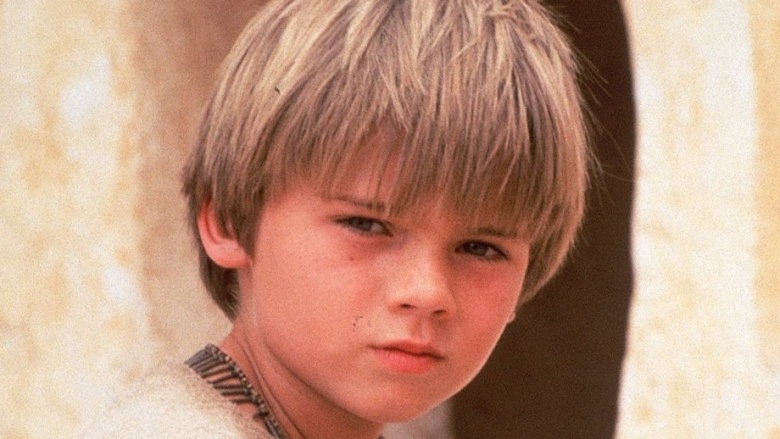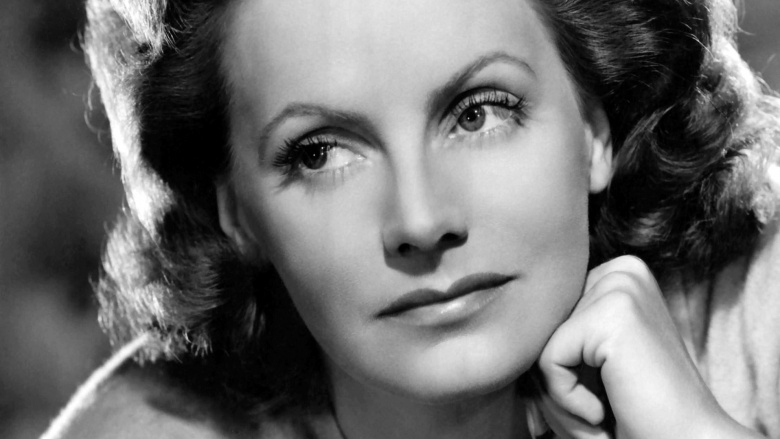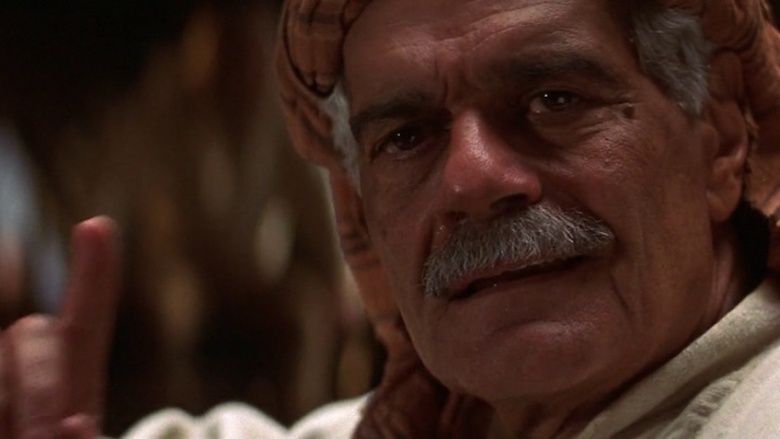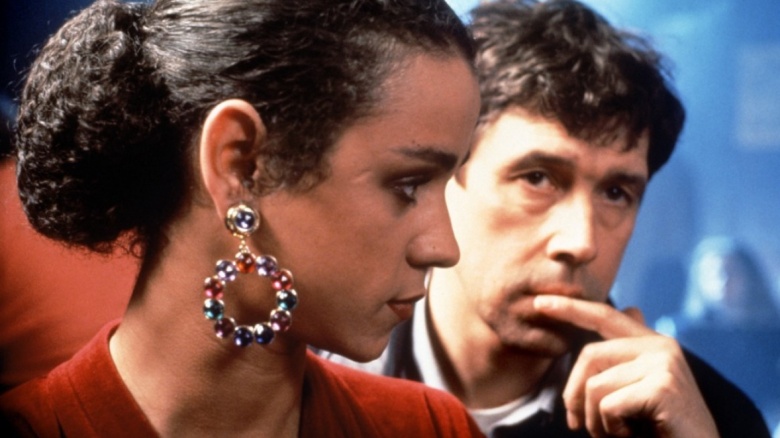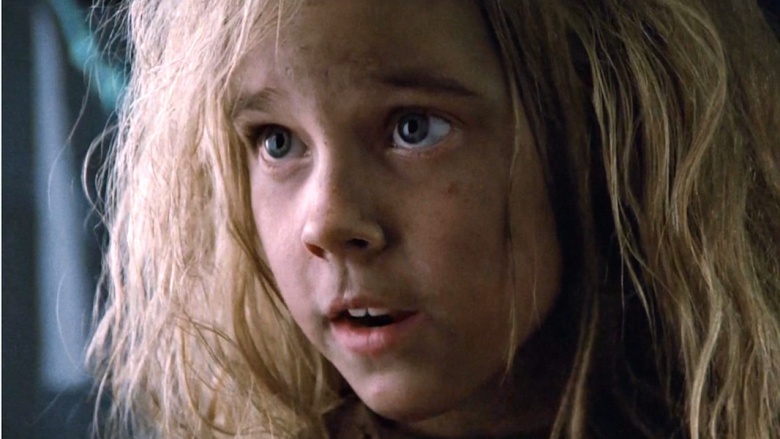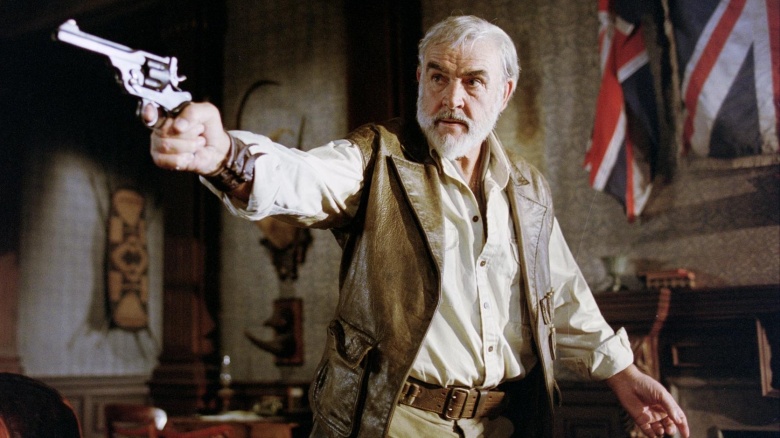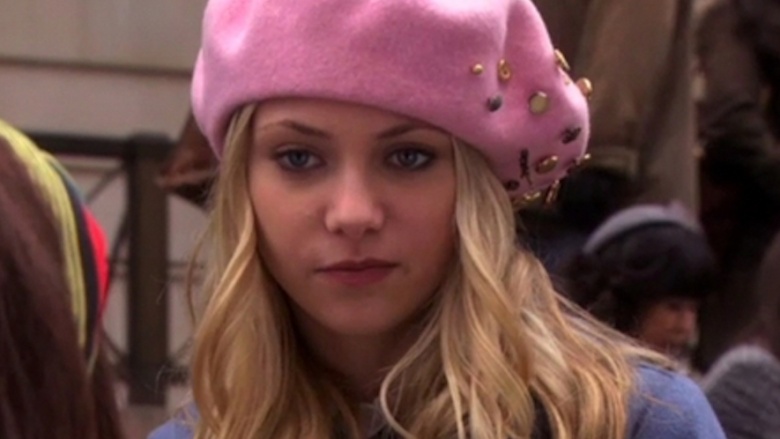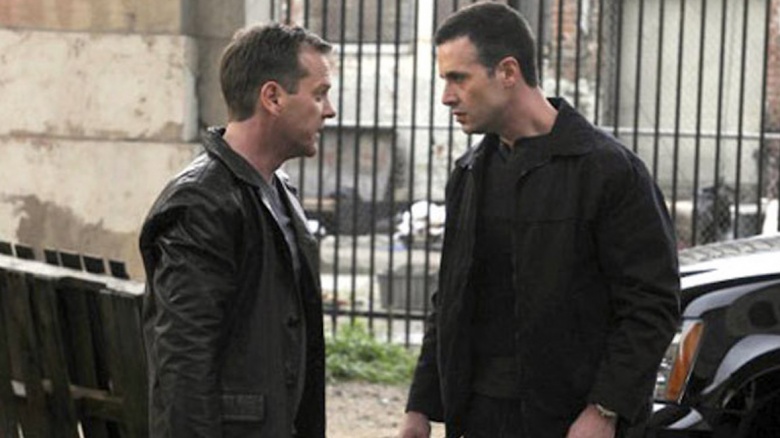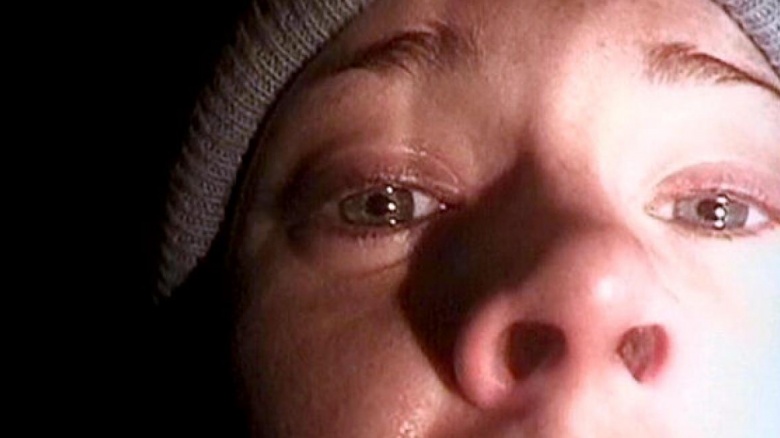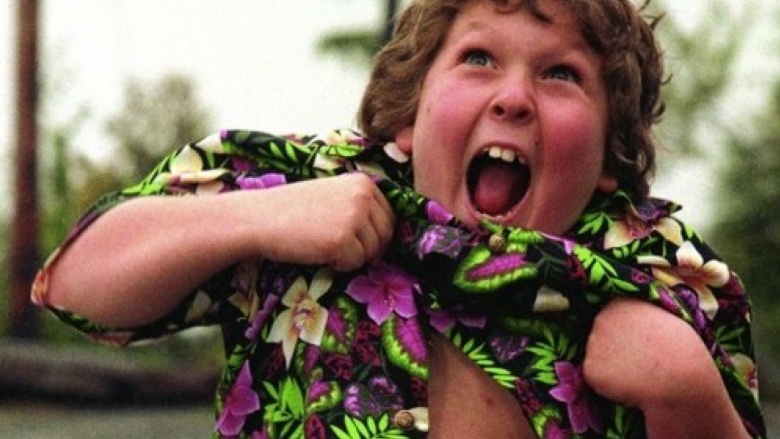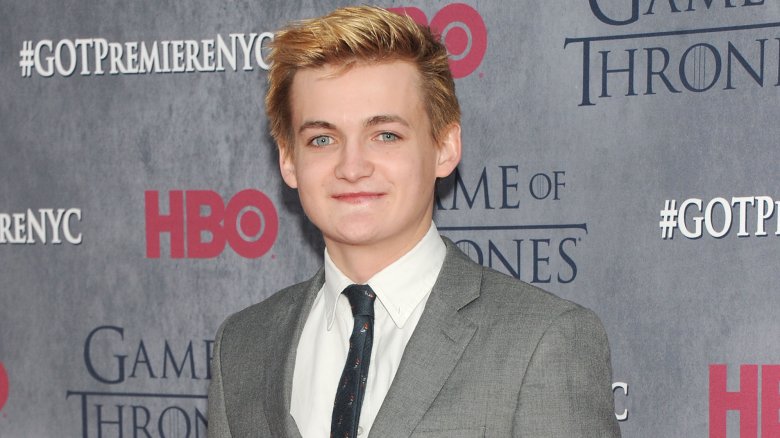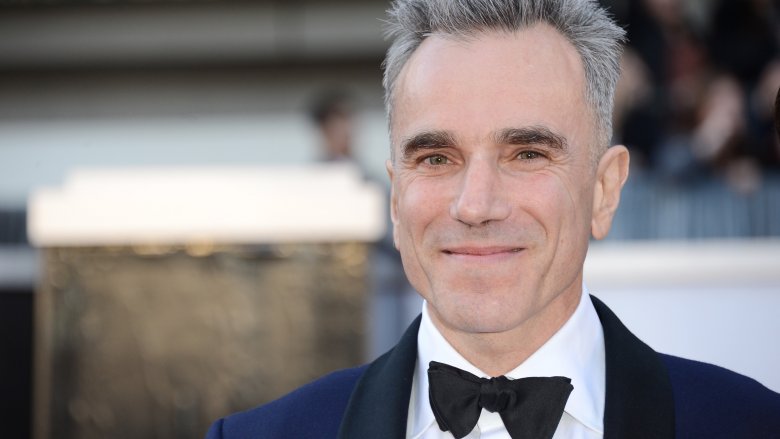Roles That Made Actors Quit Hollywood For Good
We may receive a commission on purchases made from links.
Many actors have retreated from the spotlight over the years—sometimes setting the stage for a big comeback, sometimes never to return. Whether a star has an illustrious résumé or is known for a single iconic role, playing the wrong part can be the final nail in an acting career's coffin. Here are some movies that caused actors to leave the business and never look back.
Peter Ostrum in Willy Wonka and the Charlie Factory
Peter Ostrum's first and only role was the sweetly naive Charlie Bucket in the original screen adaptation of Roald Dahl's classic. As Charlie, Ostrum was poised to inherit a delicious empire, but after the movie wrapped, he stepped away from the spotlight. According to Ostrum: "Being in the film industry as a child was hard, and I couldn't keep it going. But in the end leaving was the right decision." As he later told the Daily Express, he turned down a three-picture deal after Willy Wonka, and using his earnings, he bought a horse—his first step toward the career in veterinary medicine that he still enjoys today.
Gene Hackman in The Royal Tenenbaums
Gene Hackman built a large part of his Hollywood legend by playing tough guys. As the cast and crew of Wes Anderson's The Royal Tenenbaums would later discover, he could also be a pretty tough guy behind the scenes, too. Hackman was initially unwilling to play Royal Tenenbaum for a variety of reasons, starting with his his reluctance to take parts written with him in mind. His agent finally persuaded him to take the part, but according to numerous reports, he became increasingly volatile, at times explosively berating fellow stars, and leaving others on the set terrified of him. Hackman has since admitted he had reservations about playing the fraudulent aging patriarch, fearing he wouldn't be able to connect with his insensitivity toward his family—and while it was not his final role, it marked a definite turning point. Two years later, he skipped the premiere of his final movie, Welcome to Mooseport, and went straight into retirement, where he seems content quietly painting and writing novels (although he can still be ornery when the occasion calls for it).
Jake Lloyd in The Phantom Menace
Landing the leading role in one of the most hotly anticipated films of the '90s should have been a dream come true for Jake Lloyd. Sadly, Star Wars: Episode I — The Phantom Menace wound up being the first (and arguably the worst) installment in a disappointing trilogy, making Lloyd's experience a complete nightmare. According to Lloyd, playing the part made his life "a living hell," and he was bullied mercilessly. The child actor was also bombarded with interviews, at times doing as many as 60 a day. Lloyd would later say: "I've learned to hate it when the cameras are pointed at me." Following a string of voice acting parts for Star Wars pod racing video games, Lloyd's most notable brush with fame was an ironic high speed police chase for which he was arrested in 2015.
Greta Garbo in The Two-Faced Woman
Though Greta Garbo's stardom endured the transition from silent films to "talkies" in the 1930s, her illustrious career did not survive her second comedic role in The Two-Faced Woman. Hot off the success of her first comedy, Ninotchka, the rom-com seemed like a box office slam dunk. Sadly, her "dual" role, as a woman who doubles as her own twin sister to rekindle her marriage, made for a disastrously clunky movie. Garbo seemed to pick up on the dark cloud hovering over the production early on, lamenting that the studio was "trying to kill" her and had "dug my grave" by putting her in the film. To her utter humiliation, Garbo's performance received harsh critical reception, with TIME calling it "an absurd vehicle" for the star and the New Yorker recommending "condolences" for her part in the widely panned release. A three-time Oscar nominee at the age of 35, Garbo promptly retired from Hollywood, never to act in another picture before her death in 1990.
Omar Sharif in The 13th Warrior
Omar Sharif's roles in Dr. Zhivago and Lawrence of Arabia made him an obvious choice during the casting of the period epic The 13th Warrior. The Michael Crichton-written, John McTiernan-directed, and Antonio Banderas-starring action movie had all the key ingredients of a late-'90s blockbuster. Unfortunately, this Viking epic didn't look as good on screen as it did on paper. After a bleak reception from test-screening audiences, the studio dropped big money trying to rework the picture, but little could be done to polish it for theatrical release. The magnitude of the flop earned the movie a ranking amongst the biggest box office bombs of all time. According to Sharif, it was the last straw after a string of disappointments: "After my small role in The 13th Warrior, I said to myself, 'Let us stop this nonsense, these meal tickets that we do because it pays well'.. . . bad pictures are very humiliating, I was really sick." The iconic actor subsequently started turning down roles, claiming he'd "lost his self-respect", and that his own grandchildren had mocked him. Sharif would come out of retirement briefly for a few worthy films, including Monsieur Ibrahim and Hidalgo, before his death in 2015.
Jaye Davidson in The Crying Game
Jaye Davidson earned an Oscar nomination for his performance in the sleeper hit The Crying Game in 1992, but he never considered himself an actor. In fact, he told Rolling Stone that he auditioned on a whim and tried to back out of it twice after he was cast. A very private person, Davidson had it written into his contract that he would not have to do any publicity following the film's release. Upon seeing an initial screening, Davidson expressed discomfort, saying, "I'm not a performer, do you know what I mean? I don't leave messages on answer phones, in case of the hideous possibility that I will hear my own voice." Davidson also hated the fame that followed, and promptly returned to his roots as a fashion assistant and model. When asked if he was getting offers for more roles, he replied, "Well, I don't have an agent, because I don't want anyone to offer me another part. I don't want to be tempted out into crap films just for the money." He appeared in just one other film, 1994's sci-fi Stargate, presumably because he loved the costumes.
Carrie Henn in Aliens
9-year-old Carrie Henn was living in Laken-heath, England, where her military family was stationed, when a casting call for the 1986 space horror flick Aliens rolled through town. Henn caught the eye of director James Cameron, and though she had never acted, Sigourney Weaver voted to cast her as the orphaned lone survivor, Newt, after their very first meeting. The chemistry between the two was immediate, cementing the mother-daughter bond as a central theme of the film. Her brother Chris was also cast in a small role, though his performance wasn't seen by audiences until the director's cut was released in 1992. While she has fond memories of filming the gooey bug-hunt, neither Carrie or Chris took another acting part. According to Henn, she did not want to live in L.A. after returning to the States because it would mean being separated from her family. It didn't help much that Newt's character was killed off in hypersleep prior to the events of Alien 3. Aliens may be Henn's sole IMDb credit, but it is indeed a memorable one. Henn is an elementary school teacher today, and says she occasionally signs copies of the Aliens DVD for her students. She reportedly stays in touch with Weaver to this day.
Sean Connery in The League of Extraordinary Gentlemen
Ever wonder why we didn't see Sean Connery in the last Indiana Jones movie? Or anything else in the last decade, for that matter? You can thank the 2003 flop The League of Extraordinary Gentlemen for his retirement. The great hype surrounding this adaptation of the Alan Moore comics amounted to a production and box office disaster, and the trouble started well before the movie ever saw a screen. Connery was reportedly perpetually at odds with the film's director, Stephen Norrington, a tension that resulted in heated verbal exchanges during filming and in post-production. Numerous rumors circulated that the rift nearly ended in fisticuffs. Regardless of the behind-the-scenes fiasco, it was the last straw for the screen legend, and this extraordinary mess of a movie marked Connery's last appearance before the cameras (although he did deign to provide voice work for an animated effort, 2012's Sir Billi, which he also produced). In 2012, he remarked to GQ: "I was fed up of dealing with f***ing idiots. For years there has been a widening gap between people who can make films and people who can't."
Taylor Momsen in Gossip Girl
There was plenty of gossip surrounding Taylor Momsen's stint on the set of Gossip Girl. After she debuted as Cindy Lou Who in The Grinch Who Stole Christmas, Momsen went on to work with a lot of Hollywood heavyweights, including Robert Rodriguez, Gus Van Sant, and Mel Gibson. But her role in the CW teen soap opera caused Momsen to ditch acting altogether. Though some sources attribute her suspension and eventual dismissal from the series to off-camera cattiness and brattiness, Momsen says she left the show deliberately so she could focus on her music career as the lead singer of her band, the Pretty Reckless. When the brooding celeb was asked if she will return to Gossip Girl or an acting career...well, let's just say she's over it, ok? Momsen has jumped behind the camera, though, co-directing the charming NSFW beach-goth video for the Pretty Reckless' "It's a F***ed Up World."
Freddie Prinze, Jr. in 24
Former teen idol Freddie Prinze, Jr., has seen plenty of ups and downs in his career, and being cast as Jack Bauer's partner in the final season of 24 should have been a big "up." Not so, according to Prinze, who would later say it was the role that made him want to quit the acting business altogether. Prinze told ABC News that working with Kiefer Sutherland was the experience that soured him on Hollywood: "I did '24,' it was terrible. I hated every moment of it. Kiefer was the most unprofessional dude in the world. That's not me talking trash, I'd say it to his face, I think everyone that's worked with him has said that." Following 24, Prinze went on to work behind the scenes with Vince McMahon at WWE, and said he found that experience far more gratifying. Sutherland's rep responded: "Kiefer enjoyed working with Freddie and wishes him the best."
Heather Donahue in The Blair Witch Project
The release of The Blair Witch Project in 1999 marked the arrival of found-footage horror, a subgenre which seemingly just will not die. Sadly, the career of the film's lead star, Heather Donahue, did not have the same staying power. Donahue made a variety of appearances in indie horror flicks and on TV, including It's Always Sunny in Philadelphia, but despite her convincing performance in Blair Witch, she never found a niche in high-profile leading roles. Ten years later, she finally cashed in her chips, and hasn't sought acting work since. "I took all my stuff into the desert relating to my acting career and burned it all," she said of her post-Blair Witch years. Donahue turned to writing instead, and had her first book, Grow Girl, published in 2012. The memoir chronicles her experience growing medical marijuana on a pot farm in California.
Jeff Cohen in The Goonies
You'd be hard pressed to pick out Chunk from a lineup these days. Jeff Cohen has long since embraced his legacy as the pudgy kid in the '80s classic The Goonies, but gave up acting years ago. Or according to Cohen, "acting gave me up." Shortly after The Goonies hit theaters, Cohen hit puberty, and he wasn't an adorable fat kid anymore. After a brief run of roles in TV and voice acting, Cohen realized he'd never be Chunk again. He's looking pretty lean these days, and found a way to stay in the biz without being a chubby pre-teen: in entertainment law. He cofounded the law firm Cohen Gardner LLP in 2002, which has given him the chance to offer legal protection to child actors. Cohen celebrates his most famous character, but he is much happier being a fit adult lawyer. "When people call you Chunk every day of your life from the age of ten, it gives you a complex," Cohen said. "But I am very proud that I was a professional fat person. Anyone can be an amateur, but who can be a pro?"
Jack Gleeson in Game of Thrones
There are characters we love, characters we love to hate, and characters we want to see poisoned at their own wedding. Joffrey Baratheon definitely falls in the latter category, and that's all thanks to Jack Gleeson, a perfectly nice human being who played one of the most despicable bad guys in TV history. But after meeting his grisly end in season four of Game of Thrones, Gleeson told The Irish Independent that the HBO show was taking a toll on him, and he wasn't really enjoying the celebrity life.
"It was always a recreation beforehand," Gleeson said, "but when I started doing Game of Thrones, perhaps the reality was made too real for me. The lifestyle that comes with being an actor in a successful TV show isn't something I gravitate towards." He also told Entertainment Weekly, "I just stopped enjoying [acting] as much as I used to." So when Joffrey was finally killed off, Gleeson decided to focus on something new. Since leaving the show, he's earned a philosophy and theology degree, but while he hasn't returned to Hollywood since 2014, he hasn't completely ruled out more acting.
Talking with theMusic.com.au, Gleeson admitted he'd return to Game of Thrones if his character ever came back to life. He also described his retirement as more like a temporary hiatus. "It was more of a thing of taking a break," he explained, "and wanting to do other things because Game of Thrones was so big ... and I wanted to re-evaluate my career choices or whether I wanted to be full-time actor ... I'm just taking a step back."
Daniel Day-Lewis in Phantom Thread
A three-time Oscar winner, Daniel Day-Lewis has played nearly every kind of role imaginable, from a misanthropic oil tycoon to America's greatest president. And each time, Day-Lewis completely loses himself in the part, diving deep into every character. He learned how to throw knives for Gangs of New York, spent 48 hours in a jail cell without food or water for In the Name of the Father, and took his musket everywhere he went while working on The Last of the Mohicans. But even though it was incredibly difficult playing a writer with cerebral palsy in My Left Foot, the role that finally finished his career was the part of Reynolds Woodcock in Phantom Thread.
Directed by Paul Thomas Anderson, Phantom Thread finds Day-Lewis playing a 1950s English dressmaker, and the actor went all out for the role, learning to sew, making a dress for his wife, and studying with the head costume designer at the New York City Ballet. But while his performance earned the praise of critics, it left him feeling utterly depressed for reasons he couldn't explain. Speaking to the magazine W, Day-Lewis explained that he was "overwhelmed by a sense of sadness" during production, and when he was asked why, the actor responded, "I haven't figured it out. But it's settled on me, and it's just there."
Day-Lewis did admit, however, that he just wasn't feeling the passion anymore. "I need to believe in the value of what I'm doing," he said. "The work can seem vital. Irresistible, even. And if an audiences believes it, that should be good enough for me. But, lately, it isn't." So when shooting wrapped on Phantom Thread, the English actor called it quits, bowing out of the Hollywood game. But no matter where he goes or which new gig he ends up picking, Day-Lewis will undoubtedly become the best at whatever he does next.
